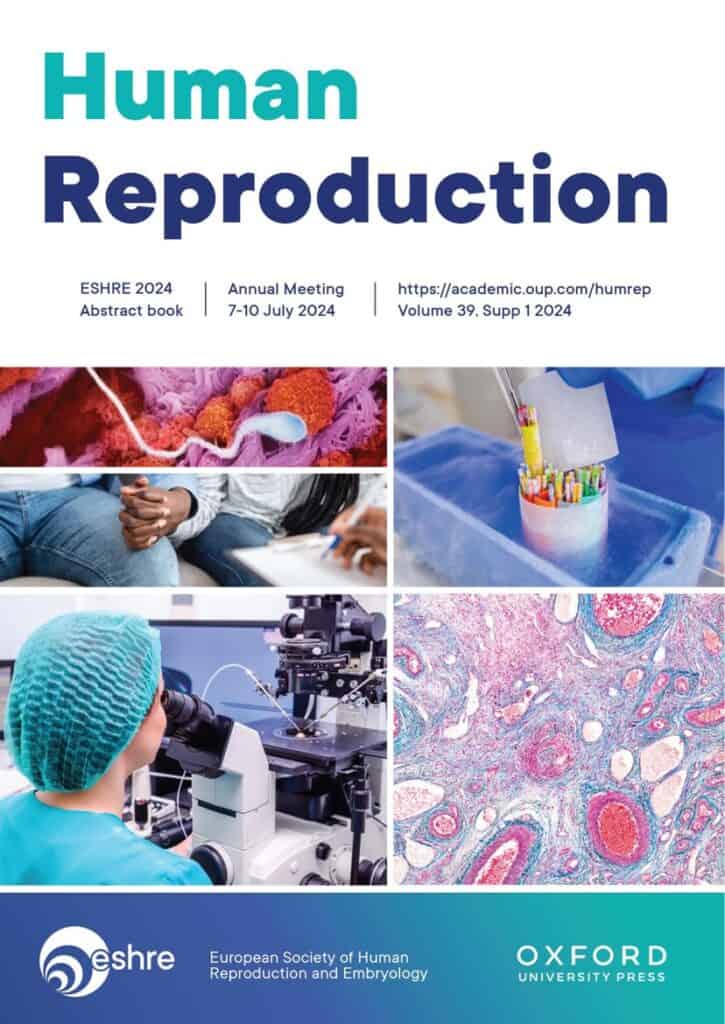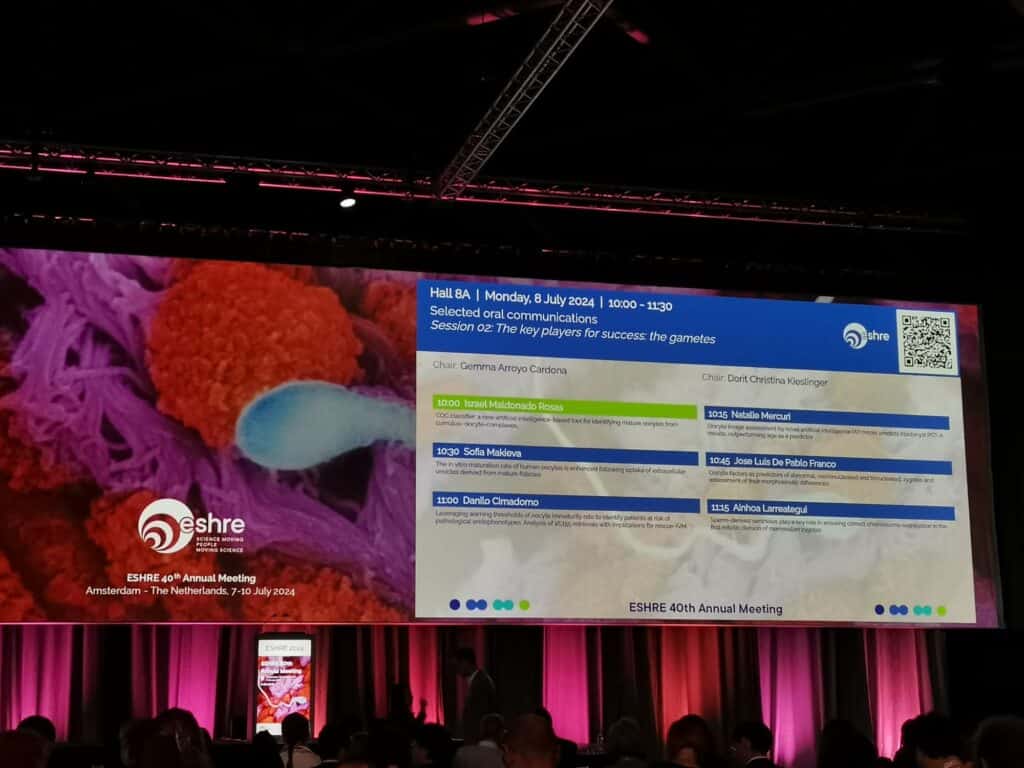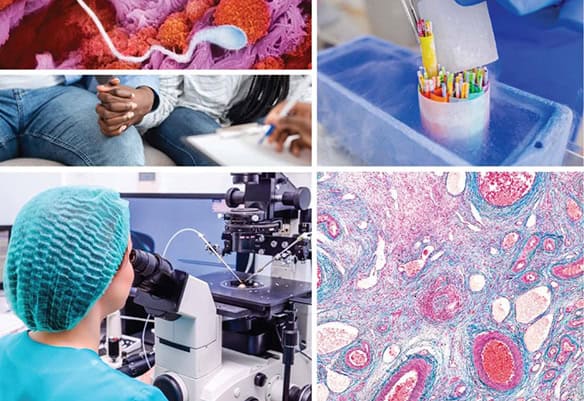On days 7-10 In July 2024, the annual conference of the European Society of Human Reproduction and Embryology (ESHRE) took place in Amsterdam, which was also attended by our embryologist, Mgr. Iva Procházková, PhD.
One of the many interesting topics of the lectures was, for example, CRISPR-Cas technology. In just a decade, this technology has revolutionized the scientific, industrial and medical sectors with its ability to serve as a highly accurate genome editing tool. The technology has received much attention and was awarded the 2020 Nobel Prize in Chemistry. Despite all these successes, the natural role of the CRISPR-Cas system, which serves as an adaptive immune system against viruses in bacteria, is sometimes forgotten. During the presentation, the natural functions of CRISPR-Cas in bacteria, its transformation into a genome editing tool, and the latest advances in the field were explained, including several unconventional applications and their possible short- and long-term impact on human reproduction.
Another interesting topic was endometriosis. Endometriosis is a benign disease of the female reproductive tract that is characterized by chronic inflammation and changes in the immune response. It affects an estimated 2-19% of women in the general population and is often associated with chronic pelvic pain and infertility. The lecture focused on the role of regulatory T cells (Treg) in the development of endometriosis. Studies show that impaired Treg cell homeostasis, leading to increased systemic and local inflammation in ectopic and eutopic endometrium, is present in women with endometriosis. Different subsets of Treg cells and their role in suppressing the immune response were also discussed. The most recent investigations have investigated naïve/resting FOXP3lowCD45RA+ Treg cells, which, upon T cell receptor stimulation, differentiate into activated/effector FOXP3highCD45RA− Treg cells with significant immunosuppressive activity.
Another important topic was the use of artificial intelligence in the selection of embryos. With the exponential growth of computing capacity and the accumulation of image data of embryos, artificial intelligence (AI) is beginning to be used in embryo selection in IVF. Machine learning (ML) technology has the potential to reduce subjectivity in embryo selection while saving time in the process. However, modern deep learning (DL) techniques, a subset of ML, are attracting growing concerns due to their lack of interpretability. Currently, there is a lack of randomized controlled trials confirming the effectiveness of these models. There is emerging evidence that black-box models underperform traditional, more interpretable ML models. On the contrary, transparent AI such as interpretable ML is increasingly being promoted across disciplines due to its ethical advantages and technical feasibility. The lecture proposed a new classification system for traditional and AI-driven systems from the perspective of embryology, defining different approaches based on morphology with an emphasis on subjectivity, explainability and interpretability.
Our clinic is proud of the participation of Mgr. Iva Procházková, PhD., at this important conference and we look forward to implementing the knowledge gained in our practice.








